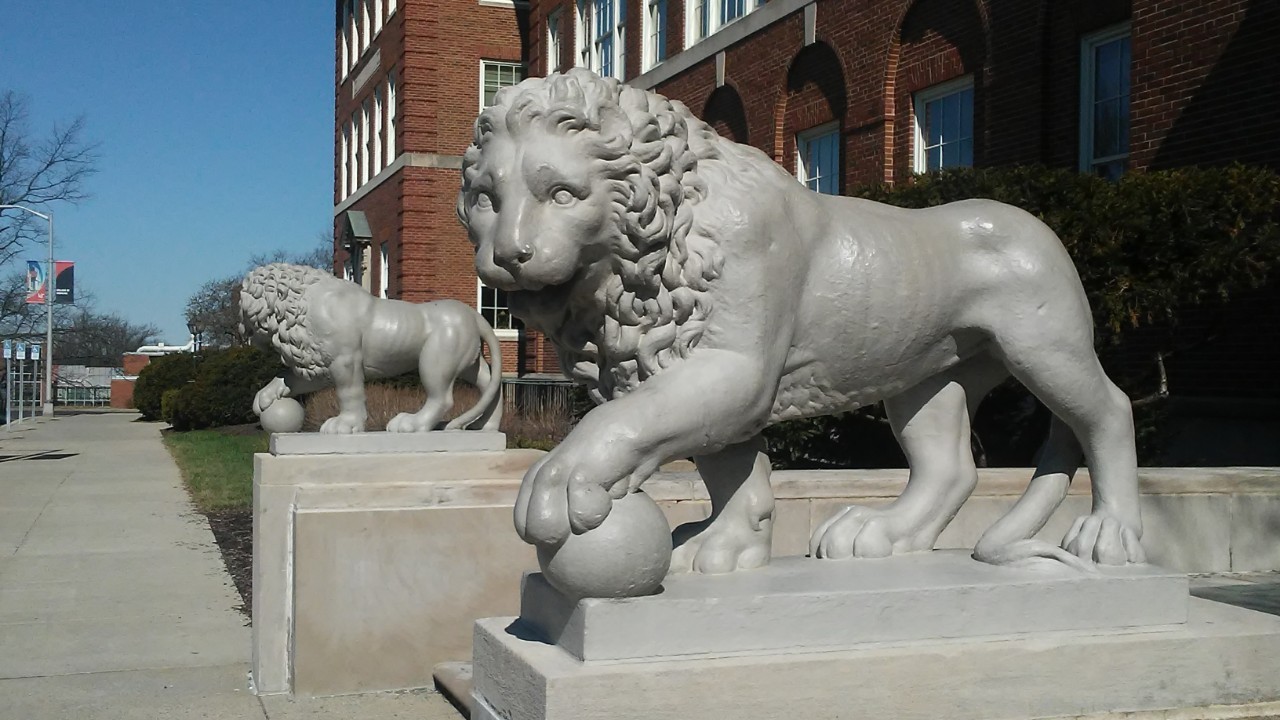
UC to become home for Philosophy of Science Association
International organization will increase outreach for humanities, opportunity for students
As of January, 2021, the international Philosophy of Science Association (PSA) moves its executive office to the University of Cincinnati for a five-year term. Located in UC’s College of Arts and Sciences and affiliated with the Department of Philosophy, the PSA move will bring new academic opportunities and increased reach to humanities studies at UC.
“This formal partnership with the PSA is a nice recognition in the field of philosophy of our department’s strength in this area,” says Angela Potochnik, professor of Philosophy and director of UC’s Center for Public Engagement with Science.

A&S Professor of Philosophy Angela Potochnik, director of the Center for Public Engagement with Science.
“The UC Philosophy department has a decades-long strength in philosophy of science,” Potochnik says. “Ours is one of the only PhD programs in the world to offer a Philosophy and the Sciences degree track, a PhD that incorporates coursework in one or more scientific fields. Our PhD students often earn a master’s degree in their focal field of science en route to their PhD, (and) our faculty are frequent leaders in the philosophy of science.”
Since 1933, the PSA has provided an international platform for research and teaching around issues in the philosophy of science academic field. It also recognizes outstanding scholarly achievements through The Hempel Award, named for one of the 20th century’s leading philosophers of science; the PSA Prize in Philosophy of Science & Race, and more.
In a statement, the PSA calls the move “fortuitous,” citing UC’s interdisciplinary Center for Public Engagement with Science and Charles Phelps Taft Research Center as providing “unique partnership opportunities to build its program of outreach activities.” The Taft Research Center has contributed financially to the hosting arrangement.
Connecting the community with science
Started in 2017, UC’s Center for Public Engagement with Science was established to connect researchers at UC with community partners and the public through dialogue and outreach.
The center sponsored a three-part lecture series at the Mercantile Library last summer on the impact of climate change on the greater Cincinnati area—how it relates to the ecology of the region, and how it affects the city and its inhabitants. The center also plans to offer an annual PSA Public Science lecture for the Cincinnati community. Its 2020 workshop was postponed because of COVID-19 until May, 2021.
The center’s climate change series provided a forum for productive conversation around what has become a politically charged topic, says John O. Faherty, executive director of The Mercantile Library in downtown Cincinnati. “Angela’s work, and the mission of the center, are so important right now. People are often intimidated by science, and shy away from it … the Center for Public Engagement with Science has figured out how to work with people in ways that make science understandable, without dumbing it down.”
People are often intimidated by science, and shy away from it … the Center for Public Engagement with Science has figured out how to work with people in ways that make science understandable.
John O. Faherty, The Mercantile Library
New academic opportunity
In addition to helping extend the center’s community reach, the relocation of the PSA executive office brings new academic opportunity to UC. An annual graduate internship is being established to serve as assistant director of the PSA, a position that will offer graduate students the opportunity to “gain experience supporting and even leading an international non-profit organization,” Potochnik says. The Graduate School has committed support to this internship.
“The experience draws from the training humanities graduate students have received and provides new opportunities to do things like manage social media accounts and websites, assist in planning large conferences as well as public events, and see behind the scenes in running a nonprofit organization with a university affiliation,” she says.
Potochnik credits UC’s Taft Research Center with instrumental support in bringing the PSA to UC. “The Taft Center has long increased the profile and reach of UC’s humanities and social science departments, as well as leading and supporting public-facing work in the humanities.”
Related Stories
Love it or raze it?
February 20, 2026
An architectural magazine covered the demolition of UC's Crosley Tower.
Before the medals: The science behind training for freezing mountain air
February 19, 2026
From freezing temperatures to thin mountain air, University of Cincinnati exercise physiologist Christopher Kotarsky, PhD, explained how cold and altitude impact Olympic performance in a recent WLWT-TV/Ch. 5 news report.
Discovery Amplified expands research, teaching support across A&S
February 19, 2026
The College of Arts & Sciences is investing in a bold new vision for research, teaching and creative activity through Discovery Amplified. This initiative was launched through the Dean’s Office in August 2024, and is expanding its role as a central hub for scholarly activity and research support within the Arts & Sciences (A&S) community. Designed to serve faculty, students, and staff, the initiative aims to strengthen research productivity, foster collaboration, and enhance teaching innovation. Discovery Amplified was created to help scholars define and pursue academic goals while increasing the reach and impact of A&S research and training programs locally and globally. The unit provides tailored guidance, connects collaborators, and supports strategic partnerships that promote innovation across disciplines.
